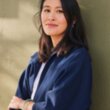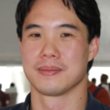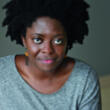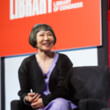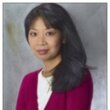Joan is okay: a novel
Description
More Details
9780593412299
9780525654841
Excerpt
Similar Titles From NoveList
Similar Authors From NoveList
Published Reviews
Booklist Review
Complicated intergenerational relationships have long fueled fiction, with immigration notably adding further challenges to parent-child understanding and bonding. Wang's provocative sophomore novel (after Chemistry, 2017) again centers on an accomplished Chinese American Harvard graduate with uneasy social, professional, and familial connections. Here Wang dissects the titular Joan's singularity, interrupted by seeming demands from her hospital co-workers, her overfriendly new neighbor, and, most urgently, her immediate family comprised of wealthy older brother Fang, their late father, and surviving mother. "Hitting is love, berating is love," is the Chinese adage her parents used to mold her. At 36, U.S.-born Joan is an exemplary ICU doctor in New York City, committed to her career. Her father's funeral--her parents reverse-emigrated back to China when Joan entered college--is merely a weekend disturbance. When Fang installs their mother in his sprawling Greenwich, Connecticut, compound, Joan only learns of her arrival when Mom uncharacteristically calls to just "chat." An enforced grief leave finally forces Joan to disconnect from work and learn new ways to be okay. And, yes, add Wang's latest to the growing list of pandemic titles.
Publisher's Weekly Review
Wang's profound latest (after Chemistry) portrays two generations of a grieving Asian American family. Joan, a 36-year-old self-possessed physician, works long hours at her Manhattan hospital's ICU and lives alone in a sparsely decorated apartment despite the insistence of her well-to-do brother, Fang, that she move to Connecticut to be closer to him and his family. But when their father, who has lived in Shanghai with their mother ever since Joan went to college, dies after a stroke, Joan begins to feel unmoored. Their mother then returns to the U.S. after 18 years, only to be stranded in Connecticut due to the pandemic travel bans. Because of language barriers, her old age, and lack of a driver's license, she depends on her children to get around and to communicate. Wang offers candid explorations of family dynamics ("berating is love, and here I was at thirty-six, still being loved," Joan reflects after Fang shames her for not going with him and their mother on a fancy Colorado skiing trip), and Joan's empathy for her ailing patients, as well as her disapproving brother and sister in law, are consistently refreshing. It adds up to a tender and enduring portrayal of the difficulties of forging one's own path after spending a life between cultures. Agent: Joy Harris, Joy Harris Literary. (Jan.)
Library Journal Review
Wang's second novel (after Chemistry) is by turns touching, funny, observant, and thoughtful. The title character is a Chinese American attending physician at a New York City hospital, where she's always willing to pick up extra shifts rather than face the confusing chaos of family obligations and other social activities. A math whiz and assiduous chronicler of vital signs, she works better with machines than with people and doesn't always pick up on social cues. Is Joan OK? All around her are people who want to help. Her pushy new neighbor loads her down with cast-off possessions; her wealthy brother Fang and his wife berate her for blowing off the lavish parties at their mansion in Connecticut; even her doorman tells her how to stand in the elevator. Then her father, who moved back to China with her mother when Joan and Fang were grown, dies suddenly. Joan makes a 48-hour trip to China for the funeral, confounding her coworkers. Her mother comes to Connecticut and is unable to return when the pandemic hits, accompanied by a wave of anti-Asian hostility and fear. VERDICT Though the book ends abruptly, readers will enjoy spending time with Wang's offbeat protagonist who straddles two cultures and tries to find her place in the world.--Liz French
Kirkus Book Review
The loss of her father forces a young doctor to confront her past and present. By most people's estimation, Joan is more than OK: In her mid-30s, she's an attending physician in the intensive care unit of a Manhattan hospital. She's such a dedicated doctor that when her father dies, she flies to China for the funeral and back in a single weekend. (She's puzzled by other characters' objections to feeling like cogs in a machine at their jobs: "Cogs were essential and an experience that anyone could enjoy," she muses.) The hospital director is so impressed with her that he's wooing her to stay with an impressive salary and perks. But she's also different from just about everyone she knows. Straightforward, literal, utilitarian Joan is a puzzle to her wealthy brother, F to her widowed mother, who doesn't understand why she doesn't enjoy womanly pastimes like shopping or jewelry; to her new neighbor, Mark, a bachelor trying to figure out how to get beyond her stoic exteri to her colleague Reese, who feels he may be in the wrong field because he can't keep up with her work ethic. When HR forces Joan on a bereavement break, she's finally left to process her father's loss and her roles as the child of immigrants, a career woman, and an Asian American. In the wrong hands, Joan's story could have been a rom-com with familiar contours or a heavy existential drama. But Joan is such an idiosyncratic character, and Wang's style so wry and piercing, that the novel is its own category: a character study about otherness set partly against the backdrop of early-pandemic anti-Asian sentiment that manages to be both profound and witty. A novel as one of a kind as its memorable main character. Copyright (c) Kirkus Reviews, used with permission.
Booklist Reviews
Complicated intergenerational relationships have long fueled fiction, with immigration notably adding further challenges to parent-child understanding and bonding. Wang's provocative sophomore novel (after Chemistry, 2017) again centers on an accomplished Chinese American Harvard graduate with uneasy social, professional, and familial connections. Here Wang dissects the titular Joan's singularity, interrupted by seeming demands from her hospital co-workers, her overfriendly new neighbor, and, most urgently, her immediate family comprised of wealthy older brother Fang, their late father, and surviving mother. "Hitting is love, berating is love," is the Chinese adage her parents used to mold her. At 36, U.S.-born Joan is an exemplary ICU doctor in New York City, committed to her career. Her father's funeral—her parents reverse-emigrated back to China when Joan entered college—is merely a weekend disturbance. When Fang installs their mother in his sprawling Greenwich, Connecticut, compound, Joan only learns of her arrival when Mom uncharacteristically calls to just "chat." An enforced grief leave finally forces Joan to disconnect from work and learn new ways to be okay. And, yes, add Wang's latest to the growing list of pandemic titles. Copyright 2021 Booklist Reviews.
Library Journal Reviews
A hard-charging ICU physician at a New York City hospital, Joan feels deeply appreciated by her colleagues and somewhat pushed about by her Chinese immigrant parents, who returned from America to China once their children were grown. Now, with her mother visiting and a terrible health crisis descending, Joan wrestles with being Chinese American, meeting the demands of her male-dominated profession, and finding her own voice. From a 5 Under 35 honoree of the National Book Foundation, author of the PEN/Hemingway Award-winning Chemistry.
Copyright 2021 Library Journal.Library Journal Reviews
Wang's second novel (after Chemistry) is by turns touching, funny, observant, and thoughtful. The title character is a Chinese American attending physician at a New York City hospital, where she's always willing to pick up extra shifts rather than face the confusing chaos of family obligations and other social activities. A math whiz and assiduous chronicler of vital signs, she works better with machines than with people and doesn't always pick up on social cues. Is Joan OK? All around her are people who want to help. Her pushy new neighbor loads her down with cast-off possessions; her wealthy brother Fang and his wife berate her for blowing off the lavish parties at their mansion in Connecticut; even her doorman tells her how to stand in the elevator. Then her father, who moved back to China with her mother when Joan and Fang were grown, dies suddenly. Joan makes a 48-hour trip to China for the funeral, confounding her coworkers. Her mother comes to Connecticut and is unable to return when the pandemic hits, accompanied by a wave of anti-Asian hostility and fear. VERDICT Though the book ends abruptly, readers will enjoy spending time with Wang's offbeat protagonist who straddles two cultures and tries to find her place in the world.—Liz French
Copyright 2021 Library Journal.Publishers Weekly Reviews
Wang's profound latest (after Chemistry) portrays two generations of a grieving Asian American family. Joan, a 36-year-old self-possessed physician, works long hours at her Manhattan hospital's ICU and lives alone in a sparsely decorated apartment despite the insistence of her well-to-do brother, Fang, that she move to Connecticut to be closer to him and his family. But when their father, who has lived in Shanghai with their mother ever since Joan went to college, dies after a stroke, Joan begins to feel unmoored. Their mother then returns to the U.S. after 18 years, only to be stranded in Connecticut due to the pandemic travel bans. Because of language barriers, her old age, and lack of a driver's license, she depends on her children to get around and to communicate. Wang offers candid explorations of family dynamics ("berating is love, and here I was at thirty-six, still being loved," Joan reflects after Fang shames her for not going with him and their mother on a fancy Colorado skiing trip), and Joan's empathy for her ailing patients, as well as her disapproving brother and sister in law, are consistently refreshing. It adds up to a tender and enduring portrayal of the difficulties of forging one's own path after spending a life between cultures. Agent: Joy Harris, Joy Harris Literary. (Jan.)
Copyright 2021 Publishers Weekly.


























